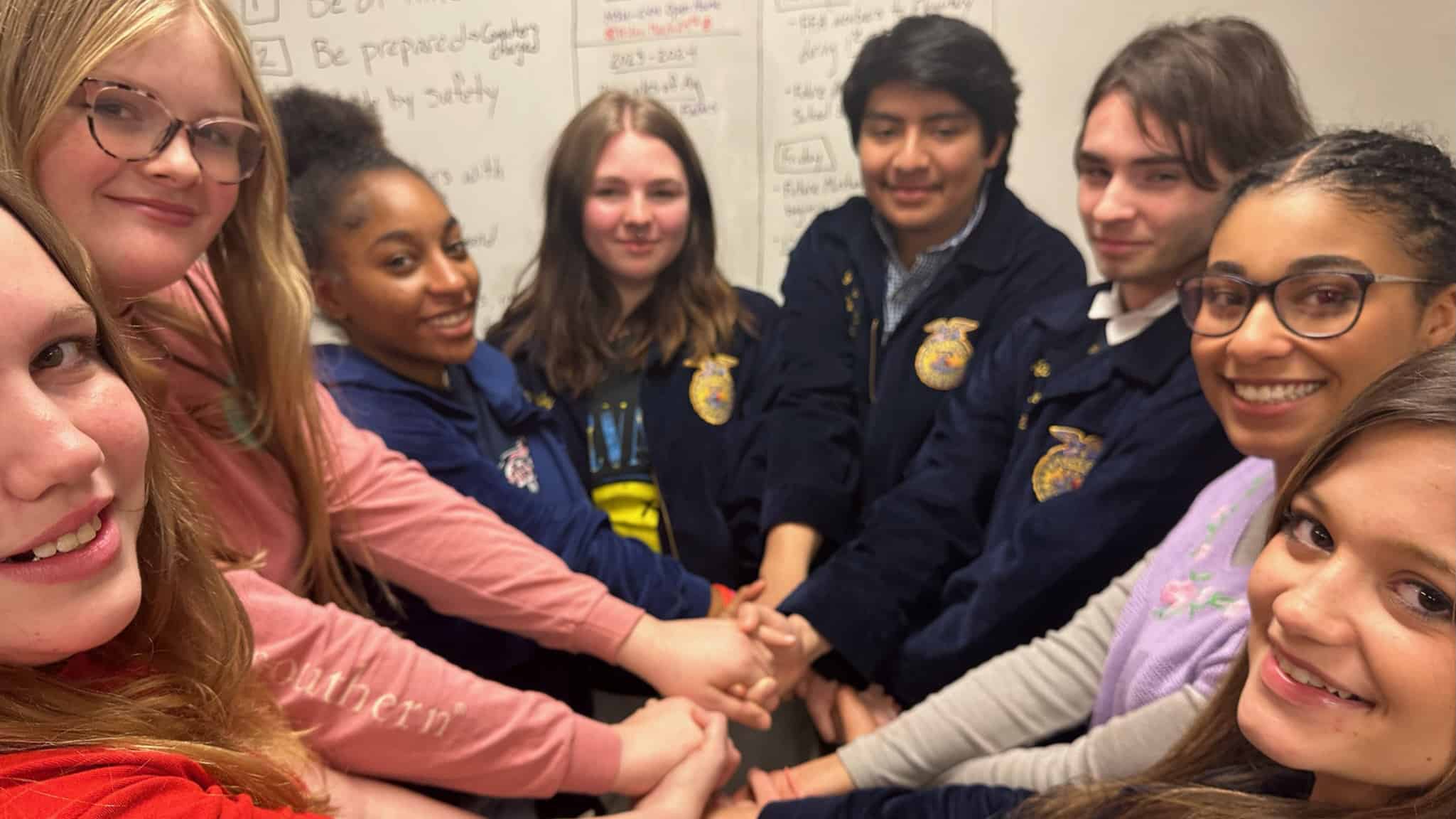As officer teams come together to serve FFA members at the local and state levels, team bonding is essential to ensure positive experiences for everyone.
“Being intentional about developing strong, respectful relationships is critical when it comes to creating a healthy team environment,” says Carley Snider, education specialist for the National FFA Organization. “Completing tasks is important, but the process will be smoother, more effective and more fun if the team stands on a firm foundation, and that doesn’t typically happen by accident.”
To help facilitate cohesive collaboration during your year of service, Snider offers five tips.
1. Start building trust immediately.
Although it may feel scary or uncomfortable, Snider recommends being authentic and vulnerable with your team members from the beginning. In the same vein, show you’re trustworthy by owning and apologizing for your mistakes and being willing to ask for help.
2. Develop a shared vision.
As a team, determine your overall goal for the year and identify your collective priorities by sharing your values, then outline the steps required for success. Snider says to think of your shared vision as a road map — without one, it’s unlikely you’ll reach your desired destination without conflict.
3. Find consensus as a team.
How will you know when your team has come to an agreement if it isn’t unanimous? Creating a system that ensures everyone’s voice is heard is imperative as you work toward a solution each team member can align with comfortably and confidently.
4. Show appreciation regularly.
Don’t hesitate to recognize and celebrate your team’s collective and individual efforts and accomplishments. When celebrating an individual, Snider says it’s important to personalize your gesture. For example, do they prefer verbal affirmation, a small gift or another token of appreciation?
5. Make time for everyone.
Finally, spend one-on-one time with the members of your team to continue strengthening bonds. Whether it’s grabbing coffee, getting together for lunch or going for a walk, setting aside time to foster relationships with each of your cohorts will help create a more robust team.
“Every member of your team will come in with their own unique perspective, and each one holds the same weight,” Snider says. “These perspectives may clash from time to time, but as long as you keep the lines of communication open with trust, respect and kindness, you can achieve anything you set out to accomplish together.”
As you prepare for the year ahead, check out the FFA state officers dashboard at FFA.org/StateOfficers to access helpful resources.
A Positive Impact
As an FFA officer, the bonds you create can have a positive impact on members you encounter. According to the 2023 State Officer Exit Survey conducted by the National FFA Organization, 54% of participating state officers reported delivering one to seven workshops a month, reaching anywhere from one to 300 members per workshop.












